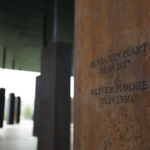Decision Paves Way for First Tribal Casino in Massachusetts by tribe who welcomed the Pilgrims.
MASHPEE, Mass., Sept. 19, 2015 — The United States government has officially acknowledged the sovereign territory of the indigenous Mashpee Wampanoag Tribe in Massachusetts. It was the Mashpee Wampanoag Tribe that welcomed and assisted the Pilgrims upon their arrival to the New World. The Tribe now has approval to construct and operate the first tribal casino in Massachusetts.
The U.S. Department of Interior issued its historic Record-of-Decision to take 321 acres of tribe-owned land-into-trust on behalf the Mashpee Wampanoag after a thorough review of the historic Tribe’s 2007 application, as amended by later submissions, to re-establish sovereign territory in Southeastern Massachusetts.
“History has come full-circle. This is truly a glorious, monumental day – a day many of our people, both living and deceased, have spent their entire lives working to establish,” said Mashpee Wampanoag Tribal Council Chairman Cedric Cromwell.
“We have occupied this land for the past 12,000 years. But, over the past four centuries, much of our ancestral home was taken away from us,” Cromwell said. “Our land-into-trust application did not seek to reclaim the entirety of our ancient homeland, which included the eastern part of Massachusetts from Gloucester Bay all the way to Narragansett, Rhode Island. However, we now have a sovereign base from which we can work to sustain our cultural traditions, develop a thriving tribal economy, and serve the needs of our people as we see fit.”
In establishing sovereign tribal lands for the Mashpee Wampanoag, the Interior Department will transfer approximately 170 acres of land on Cape Cod in the town of Mashpee, Massachusetts and approximately 151 acres of land in the City of Taunton Massachusetts to be held in federal trust for the benefit the Tribe.
The various parcels of Mashpee tribal land to be held into trust have been owned, controlled or used by the Tribe for many years for the purposes of tribal government administration, preservation, cultural and ceremonial events. And though 48 miles from Mashpee, the 170 acres of tribe-owned land to be held in trust in Taunton are within the Tribe’s historic aboriginal homeland.
As detailed in the land-into-trust application, the Interior Department’s favorable finding will allow the Mashpee Wampanoag to rebuild its land base and pursue opportunities for economic development and self-government, including but not limited to, the tribal government’s mission to house, educate, and otherwise provide for its members well-being.
Economic development revenues would be used to fund the restoration and preservation of cultural sites in Mashpee and elsewhere, as well as fund important educational; cultural; and employment programs for Tribal youth, including the Wôpanâak Language Reclamation Project.
“While some outside the Tribe will focus only on our quest to build a destination resort casino in Taunton in accordance with the federal Indian Gaming Regulatory Act, for us this goes far beyond economic development. This is about controlling our own destiny and preserving our ancient culture,” Cromwell said.
Establishing tribal lands is a cause for celebration. It is also a major stepping stone in modern Wampanoag history. Yet, tribal leaders said, there is much work left to do, aside from the Tribe’s efforts to open a world-class casino in Taunton.
Tribal leaders said they will also work in earnest with the town of Mashpee and City of Taunton to strengthen the government-to-government relationship between those municipalities and the Tribe. Tribal leaders said they look forward to a collaborative relationship that will not only raise the standard of living for Tribal citizens but also be boon for Mashpee and Taunton residents, in terms of accessing federal funds available only to trust-land Tribes for everything from cleaning up local rivers and bays to securing educational and cultural tourism dollars.
Mashpee Wampanoag Historic Preservation Officer Ramona Peters said that while much of the Tribe’s land-into-trust application focused on history, the Wampanoag are a modern tribe with as much interest in the future as in preserving the past.
“Our state-of-the-art, award-winning energy efficient Community & Government Center is a symbol of our modernity,” Peters said. “And now that the land it is on, as well as other historic pieces of property will be held in trust, it means that future generations won’t have to deal with the psychic wounds that come with being deprived of self-determination.”
About the Mashpee Wampanoag Tribe:
The Mashpee Wampanoag Tribe, known as the People of the First Light, has inhabited present day Massachusetts for more than 12,000 years. After an arduous process lasting more than three decades, the Mashpee Wampanoag were re-acknowledged as a federally recognized tribe in 2007 and retain full tribal sovereignty rights. The Mashpee tribe currently has approximately 2,600 enrolled citizens.
/PRNewswire/










